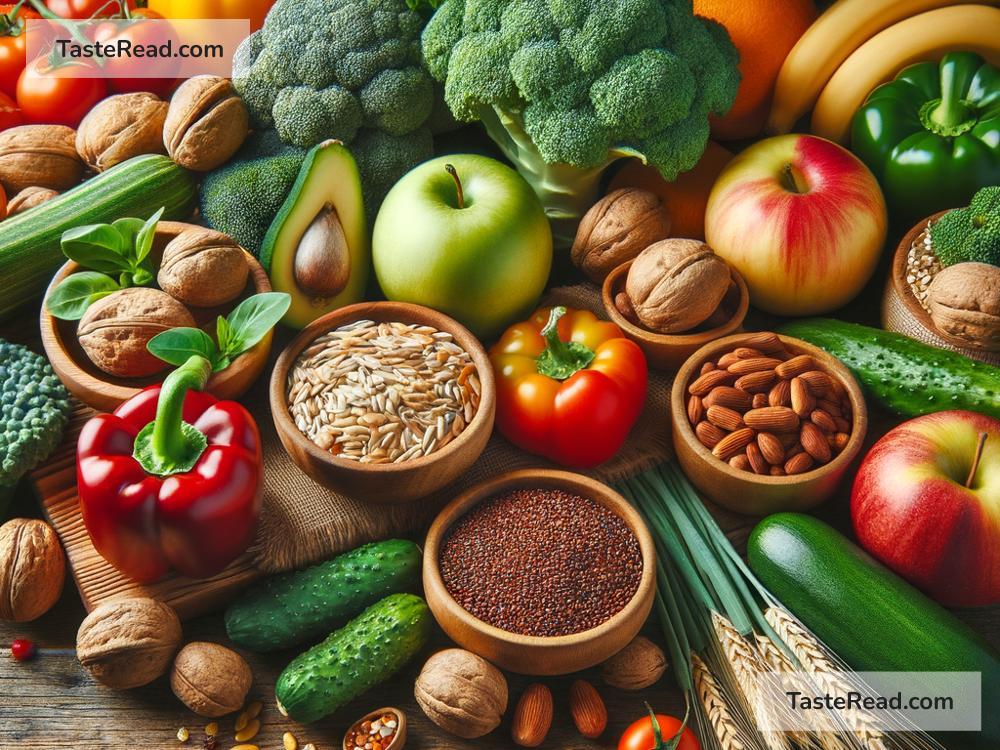Understanding the Role of Food Quality
Food is a cornerstone of our lives. It gives us the energy to go about our day, helps our bodies stay healthy, and even affects how we feel emotionally. But not all food is the same. While we often focus on taste or cost, one important factor is food quality. Understanding food quality can help us make better choices for our health and happiness. Let’s take a closer look at what food quality means and why it matters.
What Is Food Quality?
Food quality refers to how good food is in terms of safety, nutrition, freshness, taste, and appearance. It’s like asking, “Is this food something I want to eat, and is it good for me?” High-quality food meets important standards that ensure it’s safe and full of nutrients. Low-quality food, however, might not be as nutritious, and it could even carry risks for your health.
The Basics of Food Safety
One of the first elements of food quality is safety. Unsafe food can make us sick. For example, spoiled milk or undercooked meat can cause stomach problems or food poisoning. To ensure safety, food producers and sellers follow strict rules about how food is grown, processed, and stored. Paying attention to expiration dates and proper food storage (such as keeping meat cold in the fridge) also helps ensure food stays safe.
Nutrition: The Fuel for Your Body
Quality food is also full of nutrients. Nutrients include things like vitamins, minerals, protein, carbohydrates, and healthy fats. These are the building blocks your body needs to function properly. For example, vitamin C helps boost your immune system, calcium strengthens your bones, and fiber aids digestion.
When food quality is low, it might be missing these essential nutrients. Highly processed foods, like chips or candy, are often low in nutrients but high in unhealthy additives like sugar or salt. While they may taste good, eating too much of these foods can harm your health over time. Instead, high-quality foods—like fresh fruits, vegetables, whole grains, and lean meats—give your body the fuel it needs to stay strong and energized.
The Freshness Factor
Imagine biting into a fresh apple versus an apple that’s soft and starting to rot. Freshness is another important part of food quality. Fresh food not only tastes better but is often more nutritious. Fruits and vegetables, for example, start to lose vitamins and minerals the longer they sit out. That’s why it’s good to eat them soon after they’re harvested.
To buy fresher food, look for local produce at farmers’ markets or grocery stores that sell food grown nearby. Local food often travels a shorter distance to get to you, meaning it’s fresher compared to food shipped from far away.
Taste and Appearance Matter Too
Let’s be honest—if food doesn’t taste good, you probably won’t want to eat it, no matter how nutritious it is. Flavor plays a big role in food quality. High-quality food often has natural, rich flavors, like the sweetness of a ripe peach or the savoriness of grilled chicken.
Appearance matters, too. Bright, colorful fruits and vegetables often signal that they’re full of nutrients. If food looks off—like bruised fruit or meat that’s discolored—it might not be at its best quality. Paying attention to how food looks can help you pick healthier options.
How Food Quality Impacts Your Health
Why is food quality so important? Because what we eat directly affects our health. High-quality food can improve your energy levels, help you focus better, and prevent diseases. For example, eating a diet rich in whole grains, vegetables, and lean proteins can lower your risk of heart problems and diabetes.
On the other hand, low-quality food can lead to health issues. Diets high in processed foods, sugar, and unhealthy fats are linked to obesity, high blood pressure, and other problems. Over time, eating poorly can leave you feeling tired, sick, and unhappy.
Food Quality and the Environment
Food quality doesn’t just impact your health—it also affects the environment. High-quality food often comes from farms that care about sustainability. For instance, organic fruits and vegetables are grown without harmful pesticides that can damage soil and water. Choosing locally grown foods reduces the environmental impact of transporting food long distances.
When you opt for better-quality food, you’re not just helping yourself, but also supporting practices that protect the planet for future generations.
Tips for Choosing High-Quality Food
Here are some simple tips to help you pick high-quality food:
- Read labels: Look for ingredients you recognize and avoid foods with too many additives.
- Shop fresh: Buy whole foods like vegetables, fruits, and meats that look fresh and are close to their natural state.
- Go local: Support local farmers and markets for fresher, more sustainable options.
- Cook at home: Preparing your own meals lets you control the ingredients and ensures you eat high-quality food.
Final Thoughts
Food quality is essential for living a healthier, happier life. By choosing safe, nutritious, fresh, and tasty food, you’re giving your body the best possible care. So next time you shop for groceries or go out to eat, pay attention to the quality of the food you choose. Remember, good food isn’t just about filling your stomach—it’s about fueling your life.
When we prioritize food quality, we invest in ourselves and our future. And that’s a choice worth making every time you sit down for a meal!


